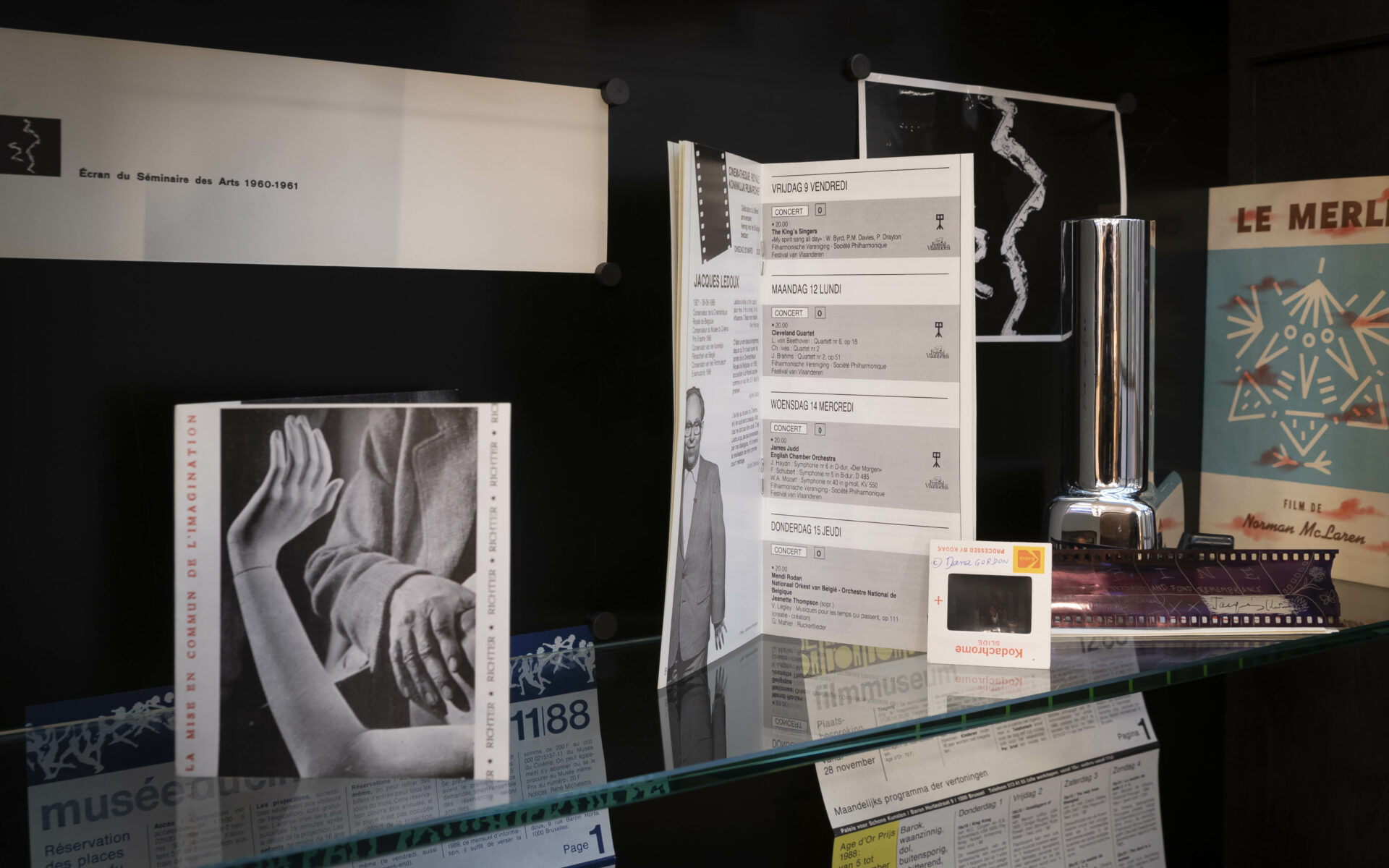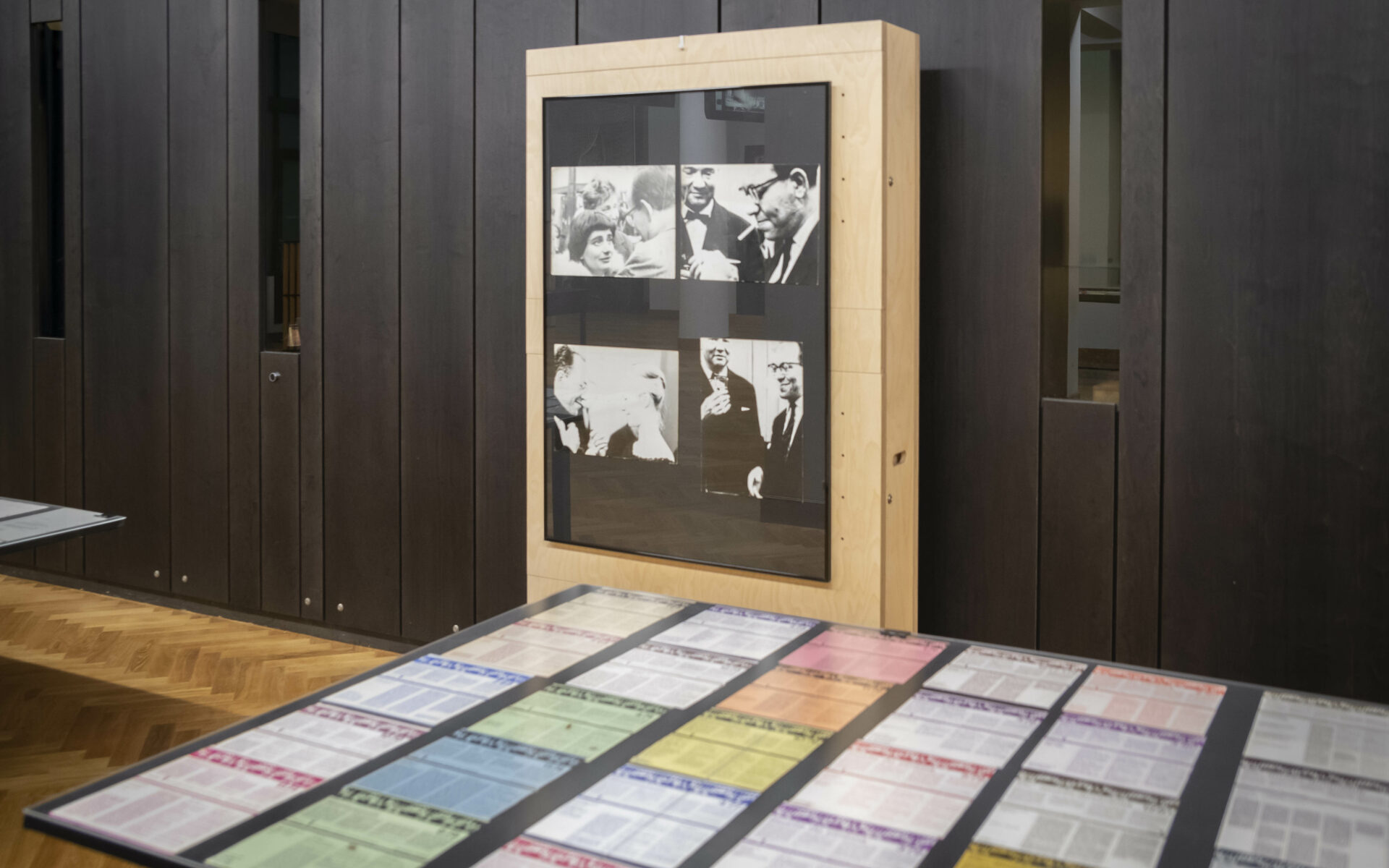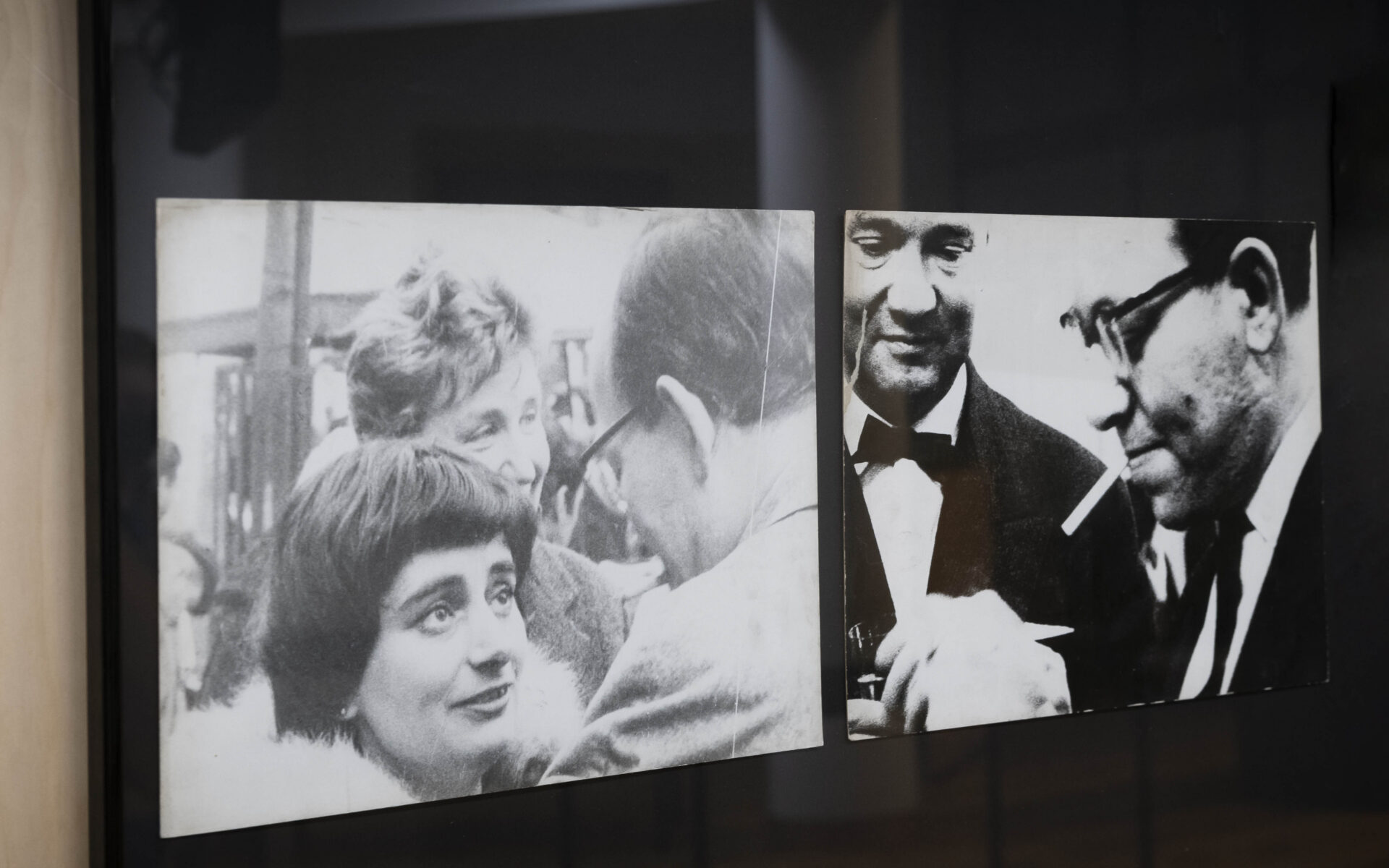
Varda & Ledoux
Agnès Varda, born in Ixelles, revolutionised the art of filmmaking through her idiosyncratic films and inspired several generations of filmmakers and artists Inspired by the Jacques Ledoux exhibition, we would like to take a closer look at her career as a filmmaker and her strong bond with Jacques Ledoux. Some people have called the dynamic duo: “Two free electrons within the force field of cinema.”
Agnès Varda, born in Ixelles, revolutionised the art of filmmaking through her idiosyncratic films and inspired several generations of filmmakers and artists Inspired by the Jacques Ledoux exhibition, we would like to take a closer look at her career as a filmmaker and her strong bond with Jacques Ledoux. Some people have called the dynamic duo: “Two free electrons within the force field of cinema.”
One of the publications on display is the programme for the tribute to Jacques Ledoux at Bozar, the Centre for Fine Arts, after his death. Don’t miss the quote from Agnès Varda.
Agnès Varda develops with her first film with almost no budget, this approach to making cheap films has helped her create her own career. In Ledoux she finds a first ‘partner’ to show her films:
"He was someone who looked at life in a certain way": collecting films, finding ever more original ways of programming them, was for Ledoux another way of reinventing life." Agnès Varda in Le Monde.
Agnès Varda originally wanted to become a museum curator; she had experimented with painting, but she found that too abstract, too intellectual. She has first made her name as a photographer; at the Théatre National Populaire; with travel reports in China, Germany, Portugal and Cuba.
In 1954 she made her first film, La Pointe-Courte, immediately a long feature. By her own admission, she had barely seen twenty films and did not know the film world at all.
Agnès Varda followed her debut with a series of several short films, amongst them striking tourist films about the Côte d’Azur and the Loire castles. At Ledoux’s insistence, she made a film for the experimental film festival of 1958: L’opéra-mouffe, in which she confronts a pregnant woman with images of women in the popular Parisian neighbourhood, ’le quartier de la Mouffe’.
He has been a friend for a long time, since he opened the doors of the Royal Belgian Cinematheque to me, in 1955, welcoming La Pointe Courte as a film. And he was the first to do so.
(Agnès Varda)
In 1963, Agnès Varda filmed Cléo de 5 à 7. Ledoux was attending the film shoot at Bar du Dôme, with the intention of actually appearing in the film. Jacques Ledoux does appear on the big screen as an actor in Chris Marker’s La Jetée, another friend with whom Varda and Ledoux develop a close relationship.
In the same year Varda and Ledoux travel together to Cuba. He travels officially as the person in charge of the FIAF and he accompanies Agnès Varda on her trip through Cuba while she is taking pictures by herself. You can read Varda’s testimony in Anne Head’s book: Jacques Ledoux, A true love of cinema, which can be found on the reading table of the exhibition or in our library.
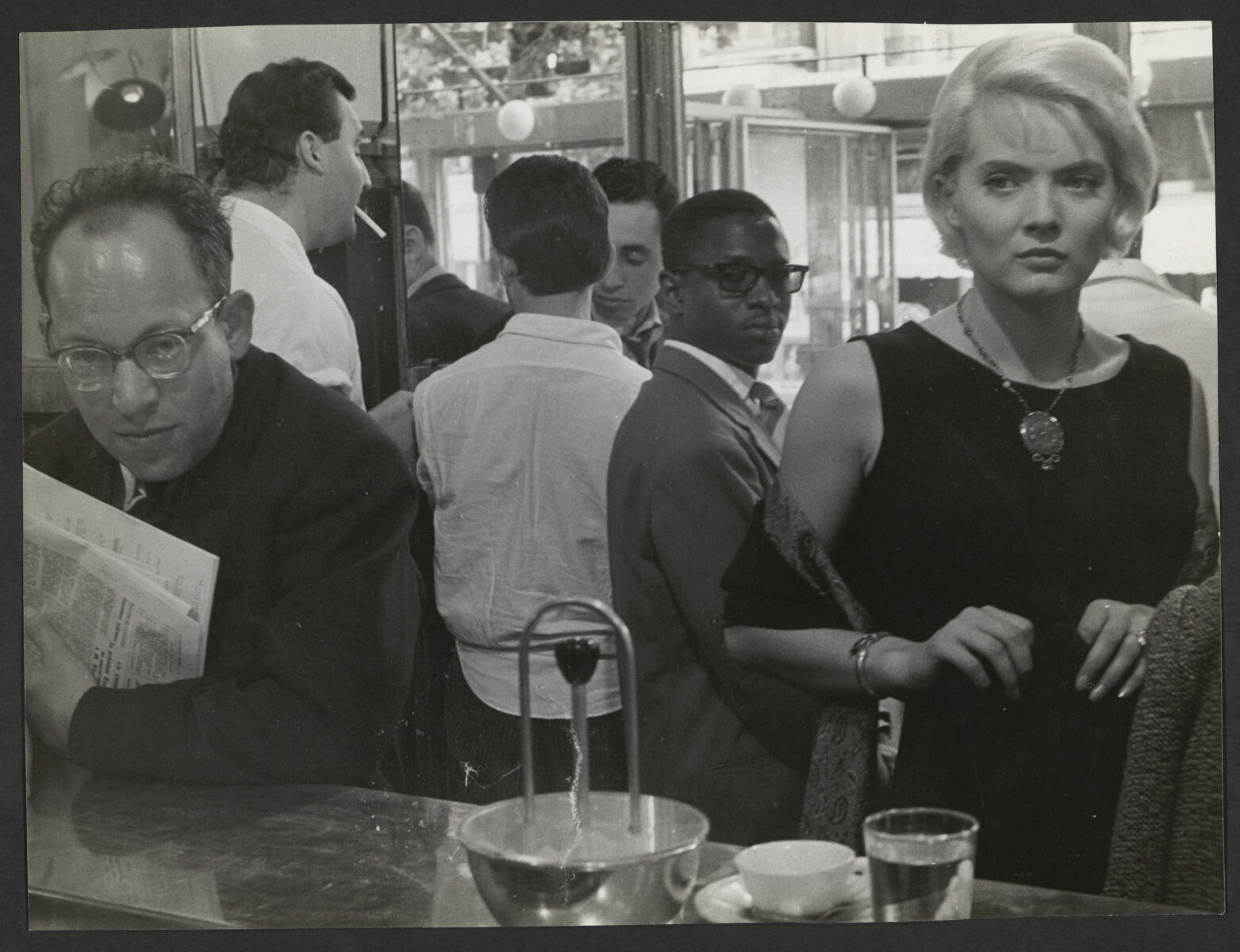
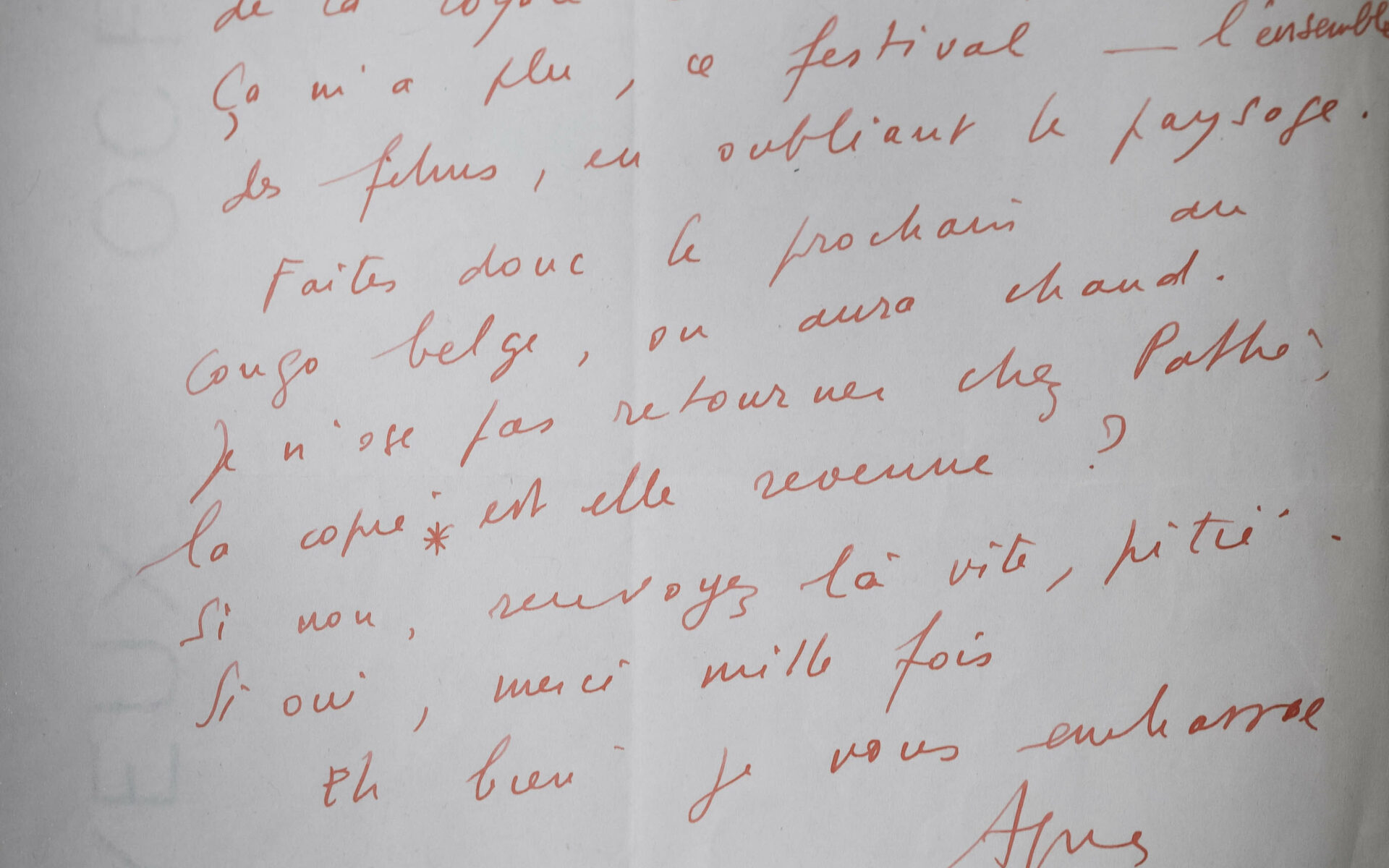
Varda later wrote him a letter in 1964 asking him to send back a copy of the film Salut les Cubains to Pathé. The film was based on photos that Varda made in Cuba and actually applies the same principle of making a film out of photos, not moving images, as Chris Marker's La Jetée, a challenge that Ledoux had already issued as a challenge to film-makers such as Alain Resnais.In the same letter she says that she enjoyed the film selection of the EXPRMNTL festival in 1963. In that magical year Ledoux was allowed to call his Film Archive 'Royal' and he organises a secret screening of the ‘controversial’ film Flaming Creatures, full of orgiastic scenes with cross-dressing that remains quite brazen by today's standards, in the hotel room of the film-maker Jonas Mekas, a key figure in the American underground film, to the festival jury, an illustrious group, including Jean-Luc Godard, Polanski and Varda, who awarded the film the 'Prix spécial du film maudit', invented for the occasion.
J’ai beaucoup de souvenirs du “Musée du cinéma”. J’y suis allée souvent. J’ai beaucoup aimé l’idée de ce photographe Jérôme de Perlinghi, qui avait photographié des spectateurs à la sortie du Musée. D’un côté, il y avait l’image d’un film de Méliès, par exemple, et de l’autre, la photo d’un spectateur qui venait d’assister à la séance. J’aime beaucoup cette idée car j’ai la conviction que ce sont les spectateurs qui font vivre le film. Un film appartient à ceux qui le regardent." Agnès Varda, réalisatrice son film ‘Les plages d’Agnès’
(évoque son amitié avec Jacques Ledoux ( La Libre 28.01.2009))


